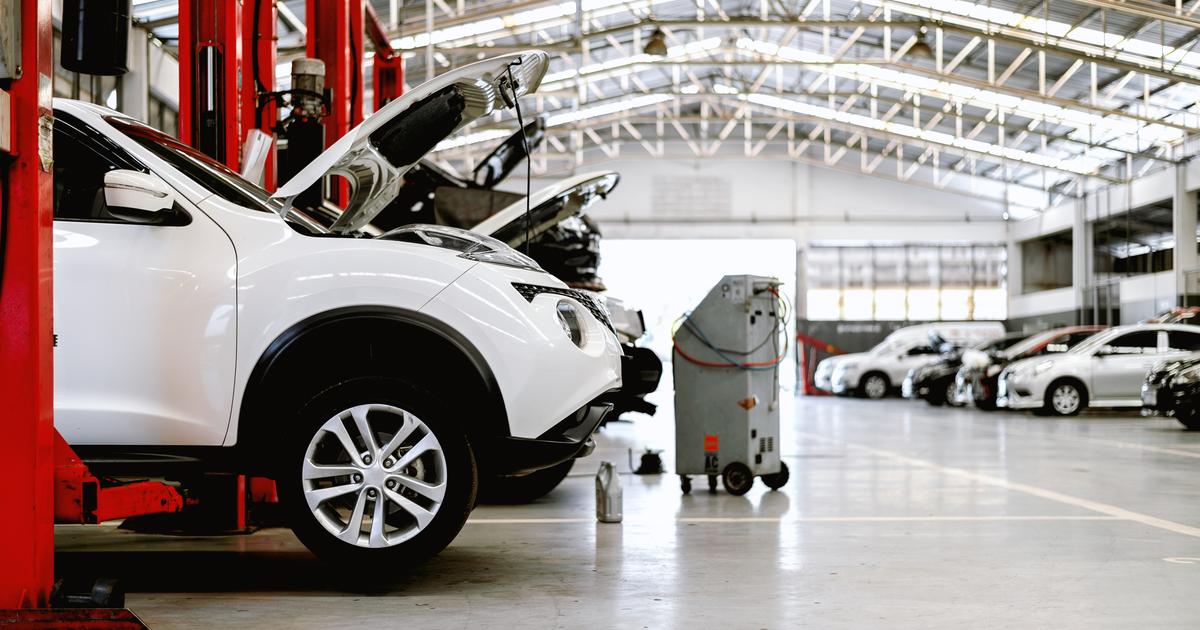“The road to “
fast fashion
” in the automotive sector is open.”
This is the cry of alarm launched by the association
“Stop planned obsolescence”
(HOP) in a report on obsolescence in the automobile, published this Wednesday, which warns of the risk
“of seeing “disposable cars””
.
On the one hand, the association created in 2015 points to
“the regulatory obsolescence of still functional thermal cars”
, caused by public policies such as low emission zones (ZFE), the planned end of the circulation of thermal vehicles in 2050 or even the ecological bonus-malus. In the case of ZFEs, this policy
“represents a risk of exclusion of certain populations, and supposes a change of motorization for many residents and workers in ZFEs”
, notes the association, which calls for
“taking an interest in the end of life of these vehicles, rendered legally obsolete
.
Beyond the regulatory aspect, HOP questions the lifespan of current vehicles. While the current economic model for the purchase and maintenance of automobiles is well
“oiled”
, a guarantee of a
“long, healthy life”
for many vehicles, the association says it
“doubts the capacity of vehicles modern thermal and electric vehicles to last 19 years, like the current average, and more
. In the electrical department, HOP questions the long-term reliability of batteries and their repairability. Some turn out to be assembled in such a way that they cannot be dismantled: hence the risk of de facto
“disposable batteries”
when these represent
“between 30 and 40% of the value of the vehicle”
.
Software obsolescence
Another trend that worries HOP: the production of new models in factories using very large molded parts instead of assembling dozens of sheets. A practice called
“giga-casting”
. Sources of savings and lightness for manufacturers, these parts can turn into a nightmare for insurers and policyholders:
“At the slightest shock, it will be necessary to replace such an important part of the car that it will probably be more profitable to scrap in the event of an impact”
, fears the association, which
“denounces the consequences of this practice initiated by Tesla and
BYD
, gradually taken up by other manufacturers”
.
Finally, HOP points out the risks inherent in the increasing electronicization of cars. The association, which obtained at the end of 2022 the opening of an investigation by the Paris prosecutor's office against Apple for having made it difficult to repair its smartphones with generic parts, argues that the same problem arises in current vehicles equipped with of electronic chips refusing
“grafts”
of parts not assembled in the factory. HOP also mentions the risk of software obsolescence of very highly digitalized vehicles.
Thus, faced with these limits, potentially costly for the consumer and harmful to the environment, the association calls on public authorities to take strong measures.
“If we don’t do anything now, it’s the advent of “fast-fashion” disposable vehicles!”
, warns Laetitia Vasseur, general delegate and co-founder of HOP, quoted in a press release. HOP is therefore calling for the establishment of a
“repairability index”
for vehicles. She would also like the creation of
“standards for durability and reparability of batteries in Europe”
, or even a ten-year guarantee for accumulators, as well as the removal of obstacles to the use of reused parts. Less than two months before the European elections, HOP has also launched a petition to put pressure on the candidates and push them to make commitments on this subject.

